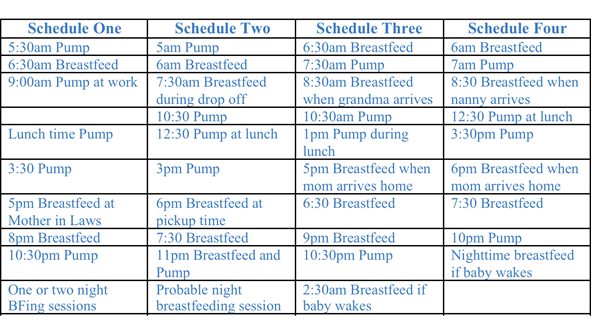Birth weight is one of the significant predictors of child mental development, future physical growth, and survival. It is one of the important risk factors for child morbidity and mortality. In Nigeria, low birth weight (LBW) affects about 5–6 million children every year.
According to UNICEF, 37 per cent of children, or 6 million children in Nigeria, are stunted (chronically malnourished or low height for age), more than half of them severely. In addition, 18 per cent of children suffer from wasting (acutely malnourished or low weight for height), half of them severely.
Being underweight is easy to assess in children because this has been the most widely collected indicator. Evidence has shown that the mortality risk of children who are even mildly underweight has increased, and severely underweight children are at even greater risk.
Child malnutrition includes under-nutrition and over-nutrition, both of which are deficiency diseases caused by inadequate nutrition. During childhood, under-nutrition causes children to have less energy and less interest for learning, which negatively influences cognitive development and academic performance. Under-nutrition will also affect physical growth and maturation, thus affecting growth rate, body weight and ultimately, height.
How To Make Baby Gain Weight Fast and Look Chubby In Nigeria
When it comes to weight gain, breast milk provides the ideal nutrition for infants. It has a nearly perfect mix of vitamins, protein, and fat – everything your baby needs to grow. And it’s all provided in a form more easily digested than infant formula. Breast milk contains antibodies that help your baby fight off viruses and bacteria.
However, sometimes, a breastfed baby will gain weight more slowly than he or she should. This could be because the mother isn’t making enough milk, the baby can’t get enough milk out of the breast, or the baby has a medical problem. Your baby’s healthcare provider should evaluate any instance of poor weight gain. Often, a qualified medical personnel can help. Below are some general tips provided by Johns Hopkins Hospital for addressing poor weight gain in a breastfed baby.
Check the schedule
- Watch for signs from your baby that he or she wants to feed. Your baby should wake and “cue” to breastfeed about 8 to 12 times in 24 hours by rooting, making licking or sucking motions, bobbing his or her head or bringing his or her hand to the face or mouth. It is important for you to recognize these feeding cues and put your baby to your breast when he or she cues. Don’t wait for your baby to cry. Crying is a late feeding cue. Usually a baby latches and breastfeeds better if he or she does not have to wait until he or she is crying, frustrated, or too tired to feed. Putting a baby off to try to get the baby to go longer between feedings and frequently offering a pacifier instead of the breast when a baby demonstrates feeding cues are often linked to poor weight gain.
- Many mothers find milk production increases and babies’ weight gains improve if they and their babies let chores and activities go for 2 or 3 days, so they can breastfeed, more or less, around the clock. When a baby is not breastfeeding, the mother holds him or her skin-to-skin on her chest, which often helps her become more sensitive to the baby’s feeding cues.
- If your baby is a “sleepy” baby who does not cue to feed at least 8 times in 24 hours, you will have to wake the baby to feed frequently–about every 2 hours during the daytime and evening hours and at least every 3 to 4 hours at night until weight gain improves.
- It can help to write down when your baby nurses, on which side, and for how long for a full 24 hours, if not longer. Take this record to your healthcare provider or lactation consultant to help find and fix the problem.
Latching and positioning
- Be sure your baby is mainly uncovered during breastfeeding. A baby that is bundled papoose-style may get much too warm and comfy, and he or she is more likely to doze off too quickly during feedings. If there is a chill in the air, drape a sheet or light blanket over you and the baby, as needed.
- If your baby falls asleep within minutes of latching on, massage your breast as he or she nurses. This can provide a burst of milk and re-trigger sucking. You can do this by stroking downward and inward on the breast.
- Make sure your baby is latching on correctly. The latch should be comfortable to you. Your baby’s lips should be flanged outward like “fish lips.” The tongue should be under your breast. A large amount of your breast tissue should be in the baby’s mouth.
- In general, avoid “switch nursing.” That is, breastfeeding at one breast for a few minutes, then the other, and then back again. This may interfere with your baby getting enough of the calorie-rich hindmilk, which your baby gets more of as a feeding continues on one breast. However, the “switch” strategy sometimes stimulates the “sleepy” baby so he or she wakes up and starts sucking again.
How To Make a Child Gain Weight Fast In Nigeria
Nutrition plays an important role in the growth and development of children, with a healthy diet synergistically enhancing physical and mental abilities. Malnutrition in children is detrimental to the development of their physical growth, cognitive abilities and psychosocial skills, with multiple downstream effects in the short-term and long-term.
A study published in the Journal of Human Nutrition and Dietetics, has shown that slowed growth doesn’t have to be permanent, with kids as old as three and four years successfully catching up through nutritional intervention and dietary counseling. This study found that with improved nutrition, a child will catch-up growth in weight and height.
During this growing years, foods that supply protein, calcium, iron and vitamins are critical to their growth and development. Without them, children may be stunted and, in serious cases, it can impact the development of their mental and motor skills. These nutrients are present in the major food groups – grains, fruits, vegetables, dairy and protein foods. Here are some food that can help;
Eggs
High in protein and vitamins, eggs are one of the richest sources of choline – an essential nutrient that aids brain development.
How to prepare it: Boil, fry or scramble them, or make omelettes. Add them to soups, porridge, gravy, rice and noodles, or make desserts like custard.
Milk
It is a good source of calcium and phosphorous, which are important for building bones and muscles. Serve full-fat milk, not low-fat or skimmed varieties, if your child is not yet two years old. Unless she is overweight, she will need the extra energy to grow.
How to prepare it: For a quick and easy breakfast, serve milk with cereal or cookies, or blend with fruits to make smoothies.
Peanut butter
Rich in monounsaturated fats, peanut butter provides children with energy and protein. However, some brands contain added salt, sugar, palm oil and partially hydrogenated fats, which reduce nutritional quality.
How to prepare it: Spread it on biscuits, or eat it straight from the jar. You can also drizzle it over ice cream or waffles.
For more growing child food tips Read: 10 Good Food That Makes Baby “Fat” in Nigeria







